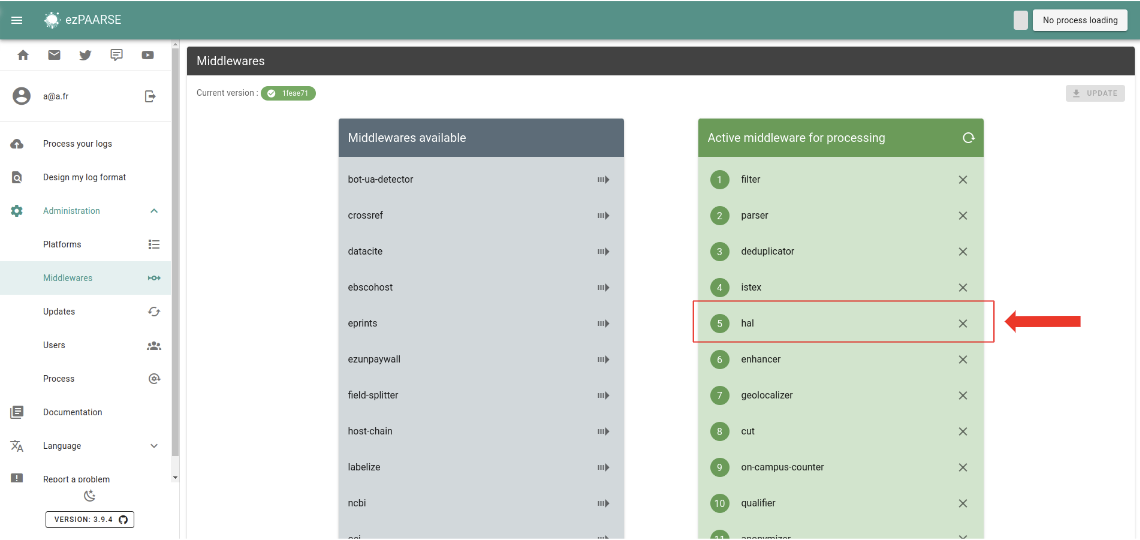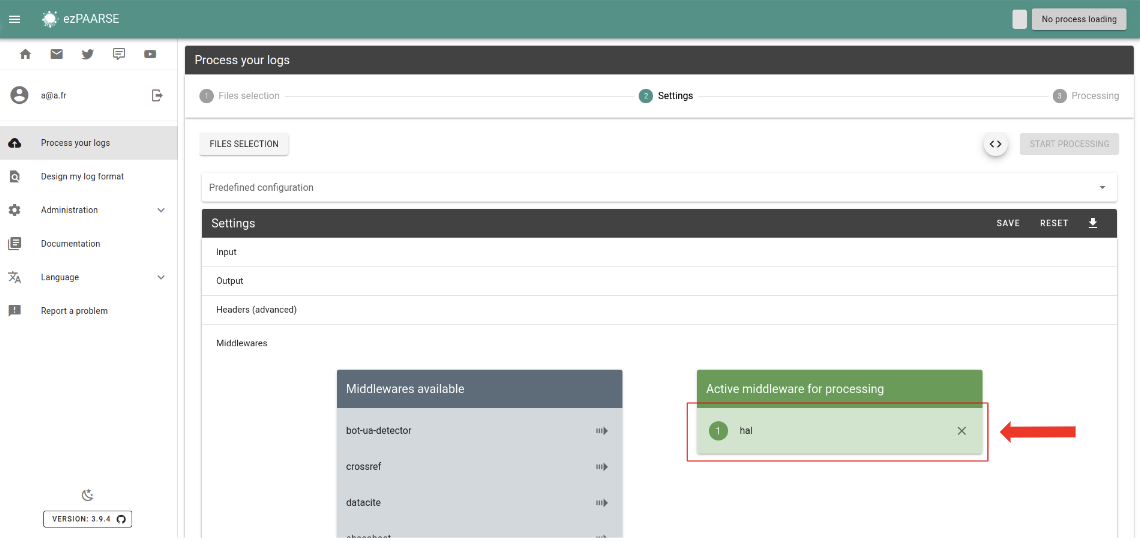# hal
Fetches HAL (opens new window) data from their API (opens new window)
This middleware is activated by default.
# Enriched fields
| Name | Type | Description |
|---|---|---|
| publication_title | ||
| hal_consult_collection_sid | ||
| hal_endpoint_portail_sid | ||
| hal_endpoint_portail | ||
| hal_redirect_portail_sid | ||
| hal_redirect_portail | ||
| hal_identifiant | ||
| hal_tampons | ||
| hal_tampons_name | ||
| hal_domains | ||
| hal_sid | ||
| hal_redirection | ||
| hal_docid | String | |
| hal_consult_collection | ||
| hal_fulltext |
The HAL middleware uses the hal-identifier found in the access events to request metadata using the node-hal (opens new window)
# Headers
- hal-enrich : Set to
trueto enable HAL enrichment. Disabled by default. hal-cache - hal-ttl : Lifetime of cached documents, in seconds. Defaults to
7 days (3600 * 24 * 7). - hal-throttle : Minimum time to wait between queries, in milliseconds. Defaults to
500. - hal-paquet-size : Maximum number of identifiers to send for query in a single request. Defaults to
100. - hal-buffer-size : Maximum number of memorized access events before sending a request. Defaults to ``1000`
- hal-max-attempts : Maximum number of trials before passing the EC in error. Defaults to
5.
# How to use
# ezPAARSE admin interface
You can add or remove hal by default to all your enrichments, To do this, go to the middleware section of administration.

# ezPAARSE process interface
You can use hel for an enrichment process. You just add the middleware.

# ezp
# enrich with one file
ezp process <path of your file> \
--host <host of your ezPAARSE instance> \
--settings <settings-id> \
--header "ezPAARSE-Middlewares: hal" \
--out ./result.csv
# enrich with multiples files
ezp bulk <path of your directory> \
--host <host of your ezPAARSE instance> \
--settings <settings-id> \
--header "ezPAARSE-Middlewares: hal"
# curl
You can use hal for an enrichment process with curl like this:
curl -X POST -v http://localhost:59599 \
-H "ezPAARSE-Middlewares: hal" \
-H "Log-Format-Ezproxy: <line format>" \
-F "file=@<log file path>"
← geocalizer host-chain →